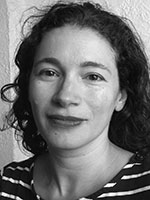history lecture series
The Great War and the modern world
Online videos now available! Find links below for the entire lecture series.
The war that broke out in 1914 was both a global war and a total war. When it was over, it had left few beliefs unshaken. The status of great powers, the hierarchy of peoples and nations, the security of domestic ties, the assurance of roles for men and women, and the rightness of colonial rule—nothing remained as it had been.
In a series of lectures, faculty from the University of Washington Department of History offer four perspectives on the Great War one hundred years after it began.
November 5, 2014
Domination, Integration, and Betrayal
Raymond Jonas
Watch the video.

The Great War signaled the terminal crisis of the European old regime–a crisis more than a century in the making. Pursuing the story of this crisis across themes of domination, integration, and betrayal, Professor Jonas will consider the rivalries that underpinned the war and the bleak geopolitical thinking that informed them. Jonas will explore the political culture that obliterated tolerance for difference, finding the foundations of power in nation and race. Finally, he will ask us to ponder the responsibilities of the powerful, viewed with the eyes of the young men they had persuaded to fight. Raymond Jonas is a Professor of History at the University of Washington. His most recent book is The Battle of Adwa: African Victory in the Age of Empire. He is currently working on European expansion into postindependence Latin America.
Recommended Reading:
- MacMillan, Margaret. The War that Ended Peace: The Road to 1914, 2013.
- Anderson, Scott. Lawrence in Arabia: War, Deceit, Imperial Folly and the Making of the Modern Middle East, 2013.
- Cooper, John. Woodrow Wilson: A Biography, 2009.
November 12, 2014
From Empires to Nation-States
Devin E. Naar
Watch the video.
 The Great War irrevocably transformed the map of Europe and the Middle East by provoking the dissolution of the major empires of the Hapsburgs, Romanovs, and Ottomans. This lecture will focus on the final years of the Ottoman Empire, the role of the war in galvanizing new nation-states in the region, and the cataclysmic impact of these processes on diverse populations. Professor Naar will also explain how issues at stake in 1914 continue to echo today in the lands of the former Ottoman empire. Devin E. Naar is a Professor of History, the Marsha and Jay Glazer Chair in Jewish Studies, and Chair of the Sephardic Studies Program at the University of Washington. He teaches courses on Jewish history, the Ottoman Empire, and Greece, and is completing a book about the city of Salonica.
The Great War irrevocably transformed the map of Europe and the Middle East by provoking the dissolution of the major empires of the Hapsburgs, Romanovs, and Ottomans. This lecture will focus on the final years of the Ottoman Empire, the role of the war in galvanizing new nation-states in the region, and the cataclysmic impact of these processes on diverse populations. Professor Naar will also explain how issues at stake in 1914 continue to echo today in the lands of the former Ottoman empire. Devin E. Naar is a Professor of History, the Marsha and Jay Glazer Chair in Jewish Studies, and Chair of the Sephardic Studies Program at the University of Washington. He teaches courses on Jewish history, the Ottoman Empire, and Greece, and is completing a book about the city of Salonica.
Recommended Reading:
- Aksakal, Mustafa. The Ottoman Road to War in 1914: The Ottoman Empire and the First World War, 2008.
- Glenny, Misha. The Balkans: Nationalism, War & the Great Powers, 1804–1999, 2001
- Mazower, Mark. Salonica, City of Ghosts: Christians, Muslims and Jews, 2006
- Andrik, Ivo. The Bridge on the Drina, 1977.
November 19, 2014
Home Fronts and Battle Fronts
Jordanna Bailkin
 Watch the video.
Watch the video.
One of the most enduring concepts that we associate with the Great War is the idea of diametrically opposed “home fronts” and “battle fronts.” Many of those who waged the war—and those who wrote about it afterwards—upheld this distinction between the bloody, scarred world of the men in the trenches and the sacred preserve of women and children non-combatants. Professor Bailkin’s lecture will look more closely at the idea of home fronts and battle fronts, considering the ways in which the Great War generated, but also ultimately challenged the idea of an absolute divide between the worlds of soldiers and civilians. Jordanna Bailkin is the Giovanni and Amne Costigan Endowed Professor in European History at the University of Washington, where she teaches classes on British, European, and imperial history. She is the author, most recently, of the prize-winning book, The Afterlife of Empire. She is currently writing a book about refugee camps in Britain.
Recommended Reading:
- Fussell, Paul. The Great War and Modern Memory, 1975.
- Grayzel, Susan. At Home and Under Fire: Air Raids and Culture in Britain from the Great War to the Blitz, 2012.
- Gullace, Nicoletta. The Blood of Our Sons: Men, Women, and the Renegotiation of British Citizenship During the Great War, 2002.
- Watson, Janet S.K. Fighting Different Wars: Experience, Memory, and the First World War in Britain, 2007.
December 3, 2014
Cultural Death and Radical Hope
John Toews
 Watch the video.
Watch the video.
By tracing the post- 1914 transformation of the legacy of philosopher Friedrich Nietzsche, Professor Toews will examine how the critical intellectual traditions of the central European fin-de-siècle were recreated and transfigured in the shadow of catastrophe. Toews will place Nietzsche’s legacy in the context of contemporaneous developments within the intellectual traditions of Marxism and psychoanalysis, showing how disillusionment with the foundational myths of Western humanism and historicism produced widespread commitment to the radical cultural construction of a “New Man” and new “World Order,” a commitment that ultimately culminated in the fascist regimes of the 1920s and 1930s. John Toews is the Joff Hanauer Distinguished University Professor for Western Civilization and Professor of History and the Comparative History of Ideas. He teaches courses in modern European intellectual history and his most recent book is Becoming Historical:Cultural Reformation and Public Memory in Early Nineteenth-Century Berlin. He is currently finishing a book on the early history of psychoanalysis.
Recommended Reading:
- Ekstein, Modris. Rites of Spring: The Great War and the Birth of the Modern Age, 1989.
- Remarque, Erich Maria. All Quiet on the Western Front, 1928.
- Juenger, Ernst. Storm of Steel, 1920.

